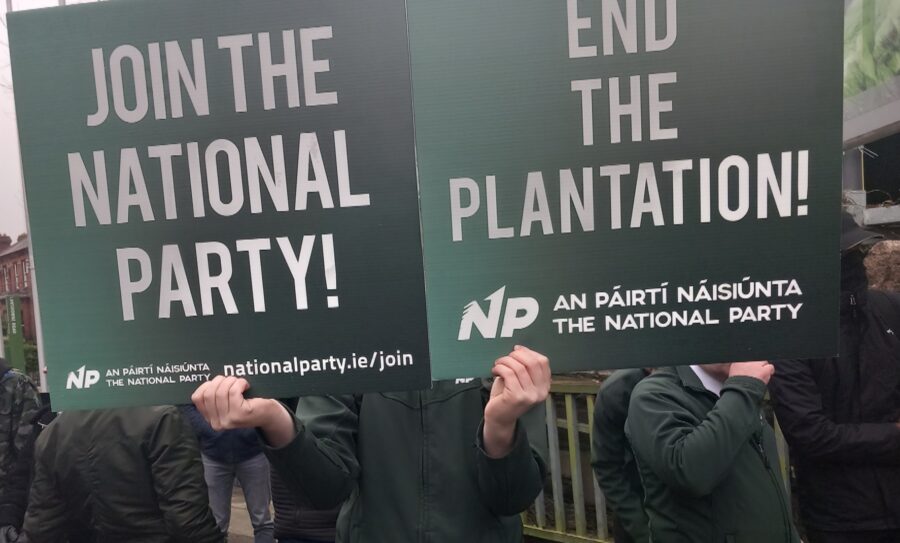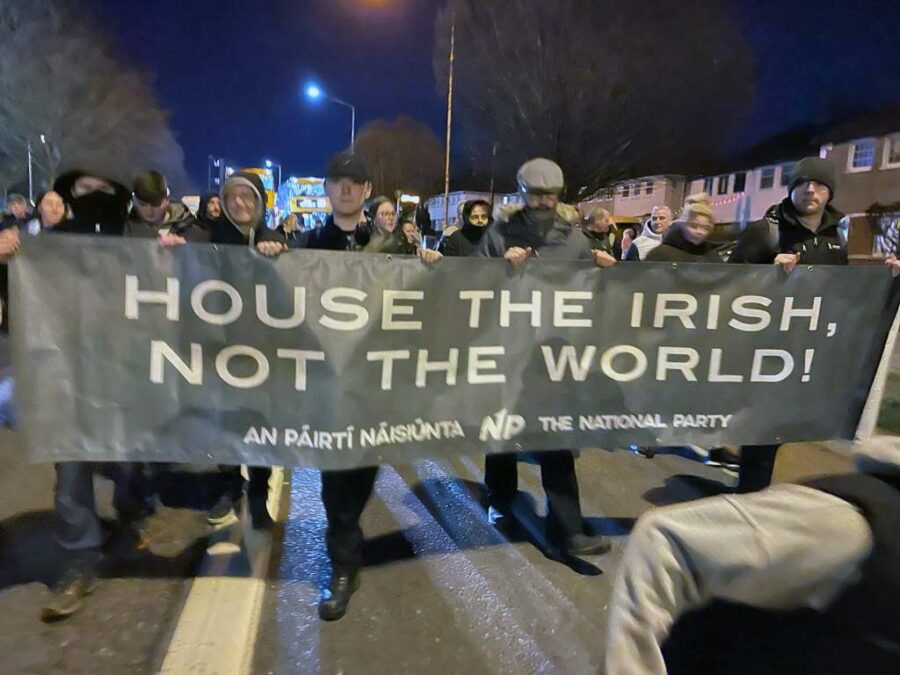Irishmen whether they’re from Cork or Belfast, Dublin or Derry will feel the twinge of historical memory as the scenes unfold before them: multitudes of foreigners planted into their homeland, displacing the Irish people from the space that is theirs by birthright; all this under the direction of a regime dedicated to the subjugation of our people. This itself isn’t a new development in our history; in the past the British state planted an entire section of our island to break the resistance of our people to the conquest; this act would have disastrous consequences that would reverberate throughout the centuries thereafter. It would be hoped that this existential crisis, which is essentially a continuation of the previous attempts to break them would lead, in turn, to a unity of thought regarding the nature of our enemy and the need for our people to be one in thought and action as we struggle to survive; this has not proven to be the case. We instead find ourselves beset on one side by a half-view in terms of our comprehension of our enemy that leaves us blind to the forces that we face; meanwhile, on the other side, we face a deliberately stoked sectionalism that has Irishmen from different parts of what should be a seamless whole treating each other with more disdain and mistrust than anything they would offer against an alien within their midst. These two issues are practically joined at the hip, and if we do not tackle them as one we will find ourselves going through our struggle with one eye closed and a hand behind our backs, doomed to fight with only a fraction of the strength we could muster.
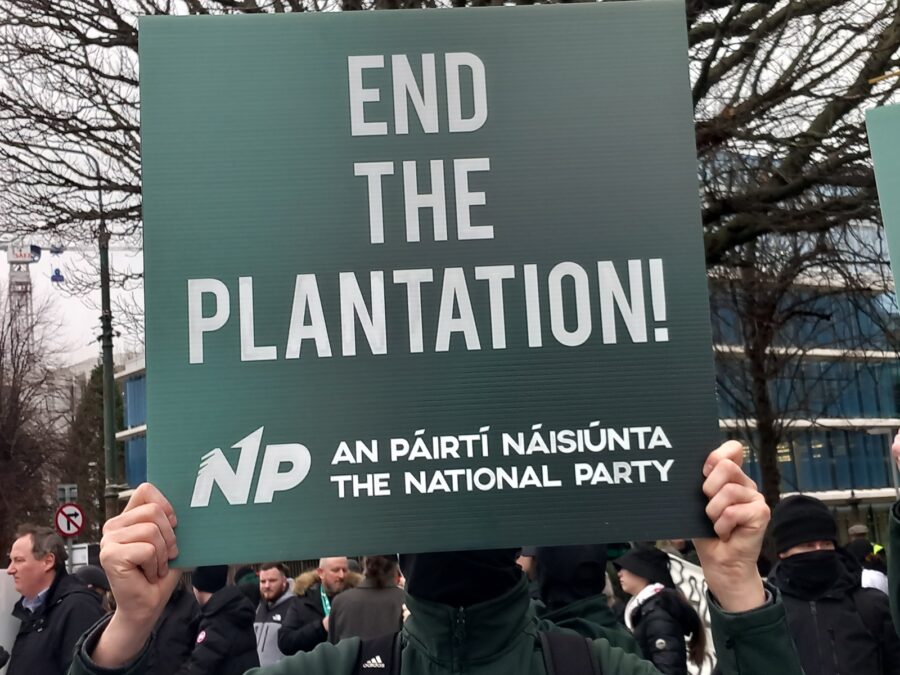
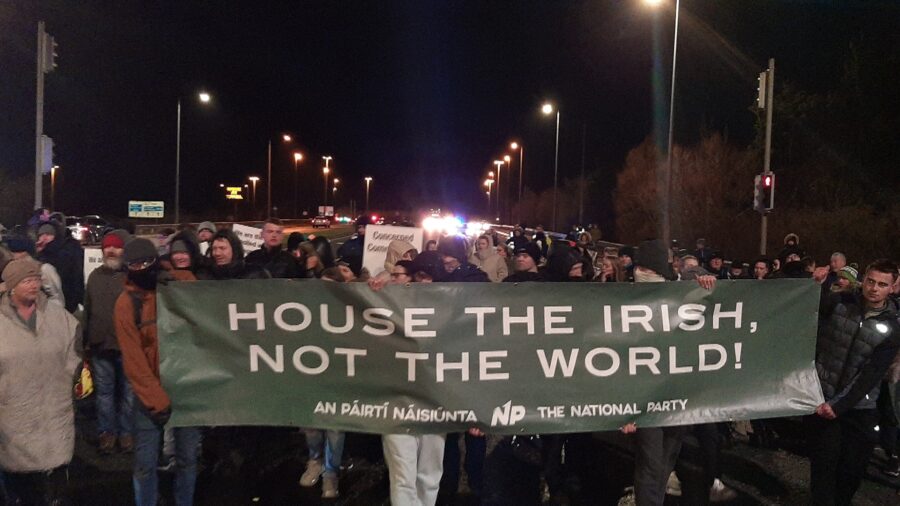
From the moment that the English first entered Ireland, they endeavoured to push our people to the margins and reduce them to helotry in their own land. As the Remonstrance of the Irish Chiefs to Pope John XXII said, “By base and deceitful craftiness they have prevailed against us so far that, with no authority from a superior, they have driven us by force from the spacious places where we dwelt and from the inheritance of our fathers; they have compelled us to seek mountains, woods, bogs, barren tracts and even caverns in the rocks to save our lives, and for a long time back to make our dwellings there like beasts.”
Can anyone read these words and not see it taking place in a new form around us today? These acts against us would eventually culminate in the abomination known as the Plantation of Ulster. To break the greatest centre of resistance to their rule the English sent our people flying to the hills, mountains and bogs while their land was given over to a foreign horde gathered from all over Britain to create a permanent garrison against the native Irish. Throughout the entirety of British rule over our people the pattern was always the same: they would use every means to control our demography, to artificially lower our numbers and scatter our people to the four winds so that our vitality, our will to survive would diminish and eventually die out in a slow, whimpering death. The eventual creation of a still-born state — mutilated at its birth by the fact that almost a quarter of its territory and 100,000s of its people still lay directly in British hands — which claimed to ‘represent’ the Irish people may have lulled many into the false sense that these times have passed and that our people have control over their own destiny; the reality is that the institutions, the central drive of the British Empire to achieve the destruction of our people has instead passed in large measure to its brother: the quieter, more insidious entity that fattened off the British Empire like a parasite to its host: International Finance.
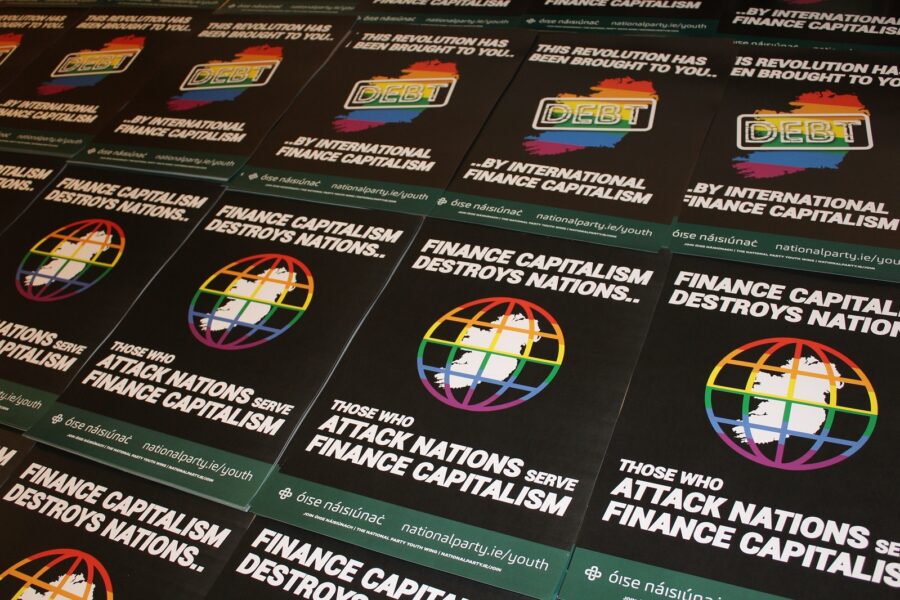
Throughout Ireland today we see the seeds of many new Ulsters being planted: virtually every town and city has a centre dedicated to housing an infinity of migrants brought in by a government laced with lackeys of Finance Capital and even direct agents of the British state who continue their tradition of war against the Irish. The policy of suppressing the population continues unabated and has done since the time of British rule: abortion, immigration and ridicule of the family are an everyday fact of life for our countrymen. The Irish follow the way of other native peoples that have exited the door of living history. At the current rate, many of our ancestral places will become as lost to us as most of Antrim has been for four centuries. Our people are enslaved by financial institutions and the decadency emanating from those twin centres of spiritual leprosy and ethical syphilis in the Anglo-world: New York and London. Our people are told that they live in an independent, ‘Irish’ state, yet the very head of their supposed police force is a veteran of an organisation which dedicated itself to combatting the instrument of Irish nationalism, and who has made it his mission to turn that very police force into a mercenary army part-Nigerian, part-Indian and wholly in service to anti-National forces. What is the distinction between Irishmen living in the Free State and Irishmen living in the Six-Counties under such circumstances? Unfortunately, this touches upon perhaps the greatest issue facing us in our people’s survival: the chasm between Irishmen from the Six and the Twenty-Six.
The condition of Irishmen throughout the island is rapidly approaching the same level: while a section engaged in a struggle with the planters of old for centuries, the remainder now faces a modern version of the same process. A development which, alas, has not yet led to a breaking down of those old barriers. In the twentieth century, this issue was exacerbated by the crime of partition and the shafting of the Irish people in the Six by a state embarrassed at its own impotency in the face of the challenges before it. Cynical forces would latch onto this and continue to do so; those that fear the potential of a movement that could break through and take in all the Irish people stoke the flames of sectionalism; they whisper into the ears of Irishmen that those that are their brothers are more distant to them than the South Asians now living across the street; that anything that emanates from another area of the island can only be using them nefariously for their own purposes. This attitude is a poison that will prevent our people from attaining their full strength as long as it’s able to work its way.
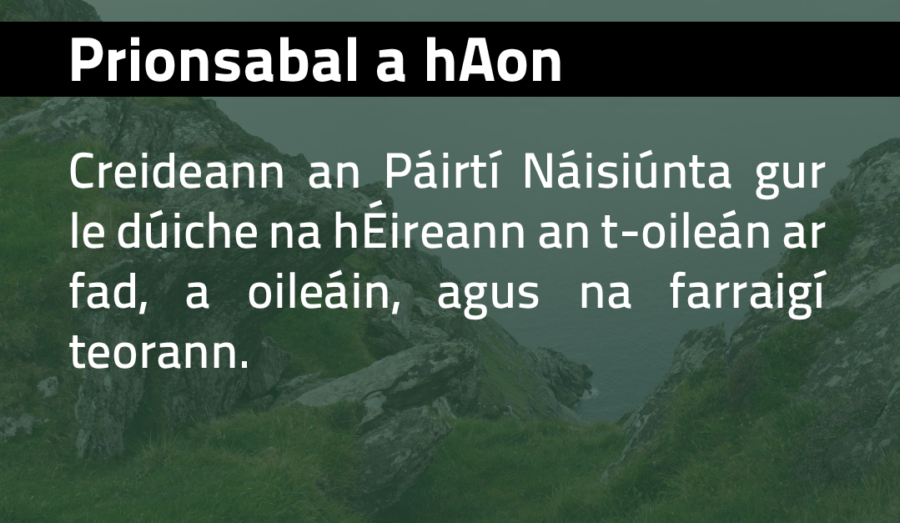
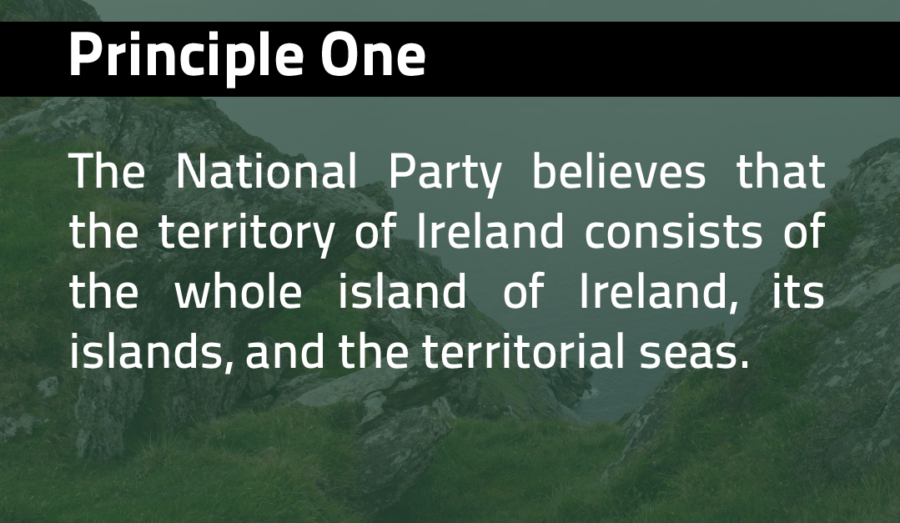
The differences that may exist between our people pale in comparison to that of our enemies. The forces of the British Empire have never gone away; while the British state continues to occupy the Six Counties and monitor our people there to prevent rebellion, both it and International Finance work on the final destruction of the Irish people the island over. When faced with the odds that are arrayed against us one is left wondering how it can be that men from Dublin and Belfast can treat each other as though they exist on different continents. What’s the difference between Orangemen pogroming our people in Clonard and Nigerians doing the same in Blanchardstown? Ireland now exists as a universal plantation whether it be Kerry or Tyrone, and through this, the bridge that stands between our people will finally be crossed over. Only a Nationalist movement with a true understanding of our enemies old and new, matched with an outlook that can overcome the divisions that have wrecked our people can lead them to a resurrection: to be re-born once again as the phoenix rises from the ashes.
This article was submitted by a National Party member. If you would like to submit an article for publication on the National Party website, follow this link.
